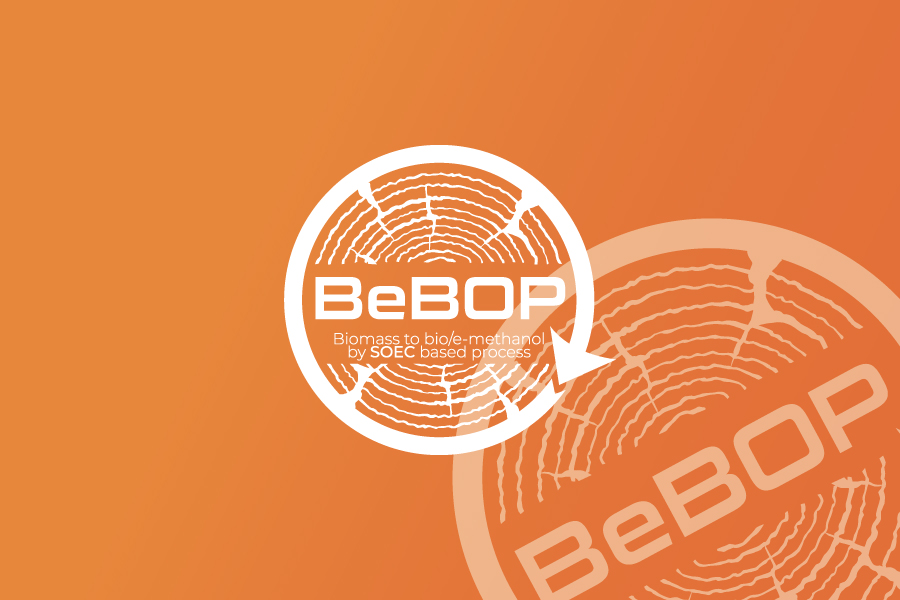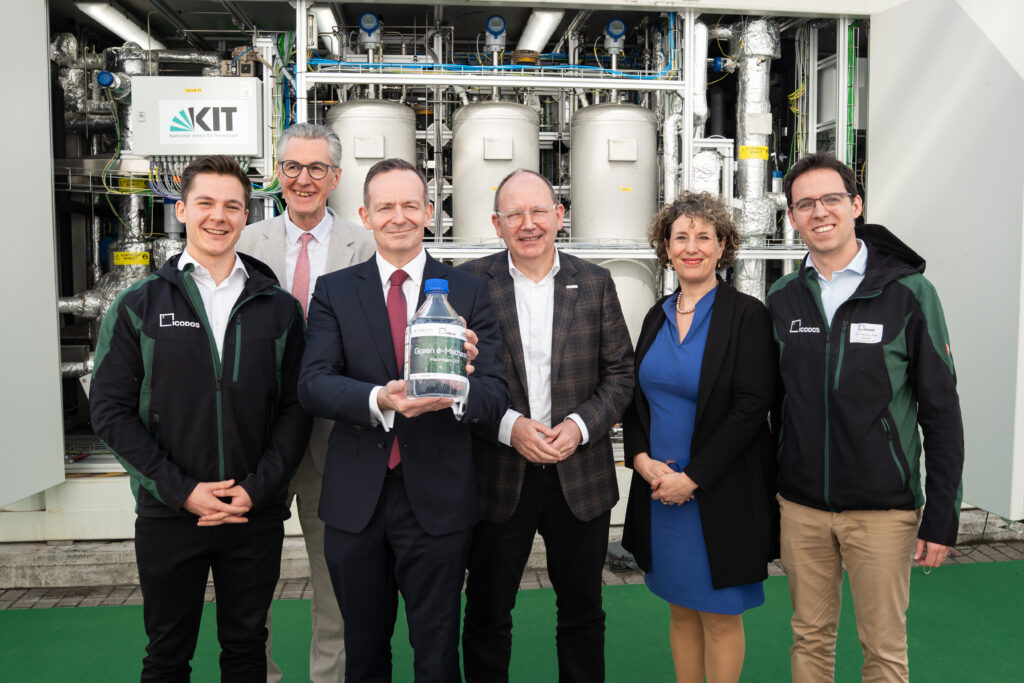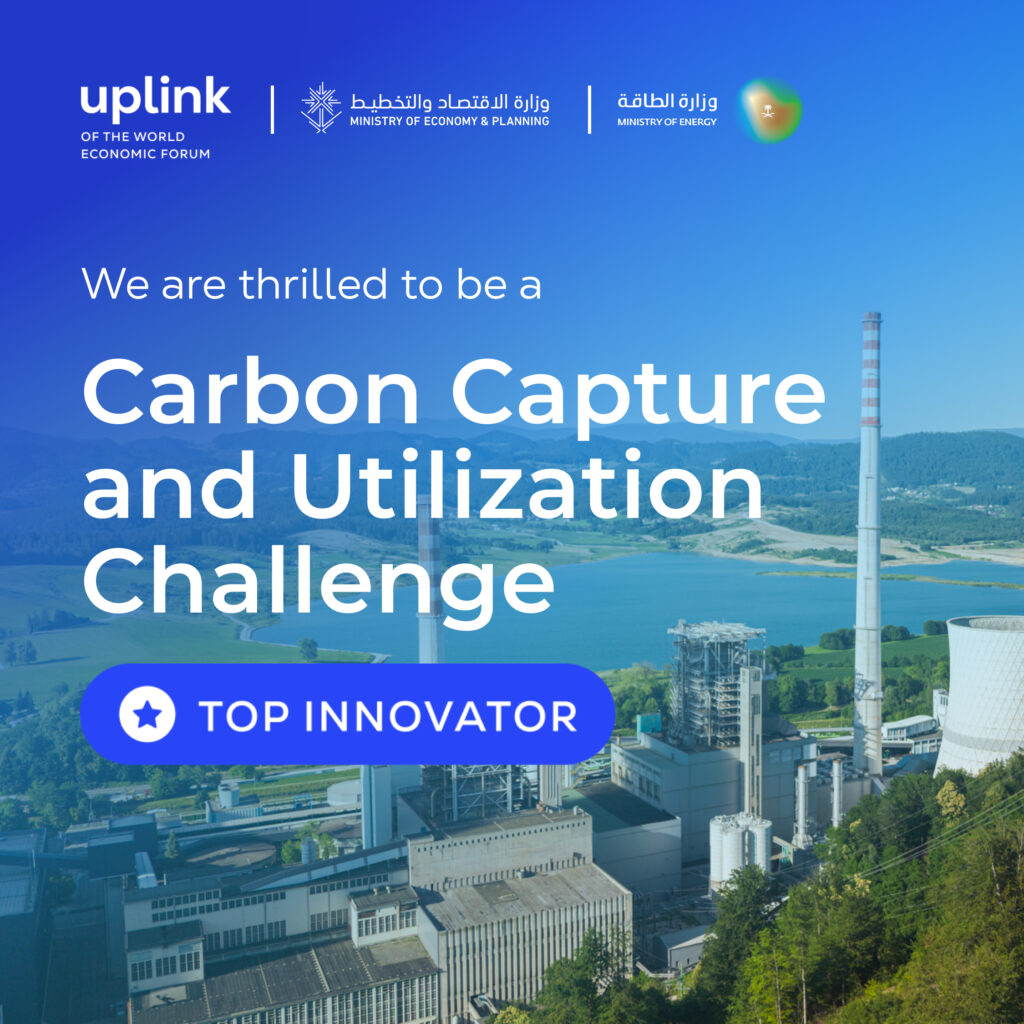Yesterday, UNI (Ente Italiano di Normazione, Milan), hosted the Workshop ‘Biofuels, e-fuels and sustainability strategies: research meets standardization’. The event was organised under the framework of the first Dissemination Event of the EU-funded BeBOP Project (Biomass to bio/E-methanol by Breakthrough SOEC-based Process: the BeBOP innovation, G. A. n. 101178117).
Three expert keynote speakers delivered presentations on their respective fields of expertise:
- Marco La Monica (ENEA), as Circular Economy and Industrial symbiosis expert provided the presentation named: Designing Tomorrow’s Energy with Circular Principles;
- Alessandro Marson (University of Padua), with a presentation slot on Environmental Management and LCA – Measuring Sustainability: the role of Life Cycle Assessment;
- Silvia Pavoni (ENI), given her expertise on Biofuels and E-fuels, delivered a presentation entitled Rethinking Energy: the role of Biofuels and E-fuels in tomorrow’s energy mix.
The session dedicated to the presentation of research posters, entitled ‘Research meets standardization’ attracted significant interest, with more than 10 scientific posters presented by PhD students and researchers. The posters presented covered topics ranging from the production of bio- and e-fuels, the recovery of critical materials from residual biomass, to new methodologies for assessing the environmental impact of technologies.
The Workshop concluded with an informal networking session, encouraging the exchange of ideas and possible future collaborations between academia, industry, and standardisation experts.
Through this Workshop, the BeBOP project reaffirms its commitment to promoting an integrated and circular approach in the production of sustainable bio/e-fuels, contributing to European decarbonisation and industrial competitiveness objectives.
Materials and insights shared during the event, including all the posters presented and the speakers’ presentations, will be made available on the official BeBOP project website and on the partners’ communication channels.
Circular Economy – Designing Tomorrow’s Energy with Circular Principles
The transition to a circular economy is one of the pillars of the European strategy for climate neutrality by 2050. Applying circular principles means, first and foremost, reducing resource waste, extending the life cycle of materials, and transforming waste into new resources of value. In the energy sector, this takes the form of industrial symbiosis networks, where the by-products of one process become the raw materials for another, creating simultaneously local synergies and resilience. BeBOP embodies this vision by using residual biomass to produce methanol, valorising ash and biochar, and recovering critical metals that can be reintroduced into new industrial cycles.
Environmental Management and LCA (Life Cycle Assessment) – Measuring Sustainability: the role of Life Cycle Assessment
Every new technology must demonstrate both technical feasibility and environmental sustainability throughout its entire life cycle. The LCA methodology is the internationally recognized analysis-tool for measuring impacts, benefits and trade-offs, and for making long-term decisions.
A simple example: is a wooden toothbrush really more sustainable than a traditional recycled plastic one? If it needs to be replaced more often, the wooden toothbrush overall impact could indeed be greater than the traditional recycled plastic one. LCA therefore teaches us that ‘bio’ raw materials alone are not enough to guarantee sustainability: the entire life cycle counts. This is the same principle that guides BeBOP: to demonstrate, with objective data, that the use of residual biomass to produce bio/e-methanol is a truly competitive and sustainable alternative, evaluating emissions levels, water consumption, soil exploitation, and material circularity throughout the entire life cycle.
Biofuels and E-fuels – Rethinking Energy: the role of Biofuels and E-fuels in tomorrow’s energy mix
Biofuels and e-fuels are important levers to accelerate the decarbonization of sectors that are more difficult to electrify, such as heavy transport, shipping, aviation and industry. Biofuels are based on low CO2 biological resources, whereas e-fuels combine green hydrogen and captured CO2, thereby trapping the carbon content within the final product. The rapid integration of these solutions is fundamental to achieve European energy target, although this remains challenging in terms of economic competitiveness and large-scale availability. BeBOP addresses this challenge with an innovative process that combines residual biomass and green hydrogen to produce renewable methanol, providing a practical and scalable solution for the new European energy mix.
BeBOP project in numbers: start date: 1st October 2024; Total project duration: 48 months; Total budget and EU contribution: € 11,166,415.71; 12 partners: EUCORE (Coordinator, Italy), Politecnico di Milano (Italy), LUT University (Finland), VTT (Finland), ELCOGEN (Estonia and Finland), ICODOS (Germany), ECODESIGN company GmbH (Austria), INERIS (France), WOOD (Italy), RIC (Poland), UNI – Ente Italiano di Normazione (Italy)
EUCORE: BeBOP project Coordinator, leader of dissemination, communication and exploitation activities.
Politecnico di Milano: the largest Italian technical universities. Politecnico di Milano is the Scientific Coordinator of the Project in support to EUCORE, and it is responsible for the experimental testing of the electrolyse cell, and the simulation of integrated biomass to methanol plant.
LUT University: the Finnish University responsible for modelling the digital-twins of the BeBOP technology.
VTT: the Finnish independent research institute that hosts the pilot plant, which is currently being engineered and constructed and integrated for gasifier, gas cleaning, solid oxide electrolyser and methanol synthesis unit integration.
ELCOGEN: composed by both its Finnish branch (ELCOY) and the Estonian one (ELCOGEN), the ELCOGEN group is responsible for designing and manufacturing of novel solid oxide cells incorporated to new stack platform, designed for large-scale production.
ICODOS: the German SME responsible for engineering and design of the methanol unit equipped with a 3D printed reactor for integration in the pilot plant at VTT
ECODESIGN company GmbH: the Austrian engineering consultancy responsible for ensuring that the pilot plant, its components as well as the whole process are designed to incorporate Circular Economy principles. Furthermore, the company will apply a LCA not only for the pilot plant, but also a scaled-up process in order to assess its potential future environmental viability.
INERIS: a French National Institute contribute to the Project evaluating risk assessment and cost benefit analysis, handprint analysis for social acceptance.
WOOD: a global leader in consulting and engineering whose role is to develop the BeBOP scale-up, the pre-FEED study, and the economic analysis of a commercial-scale BeBOP plant, as well as supporting the exploitation of the project results.
RIC: the Polish research and innovation centre whose role within the project is to develop a method for extracting trace elements from solid gasification residues and to develop methods for recovering heavy metals.
UNI: the Italian standardization body that is responsible for mapping existing standards and promoting the development of new pre-standardization documents.
| Funded by the European Union. This project has received funding from the European Union’s Horizon Europe research and innovation programme under the Grant Agreement no. 101178117. Views and opinions expressed are however those of the author(s) only and do not necessarily reflect those of the European Union or European Health and Digital Executive Agency (HaDEA). Neither the European Union nor the granting authority can be held responsible for them |


